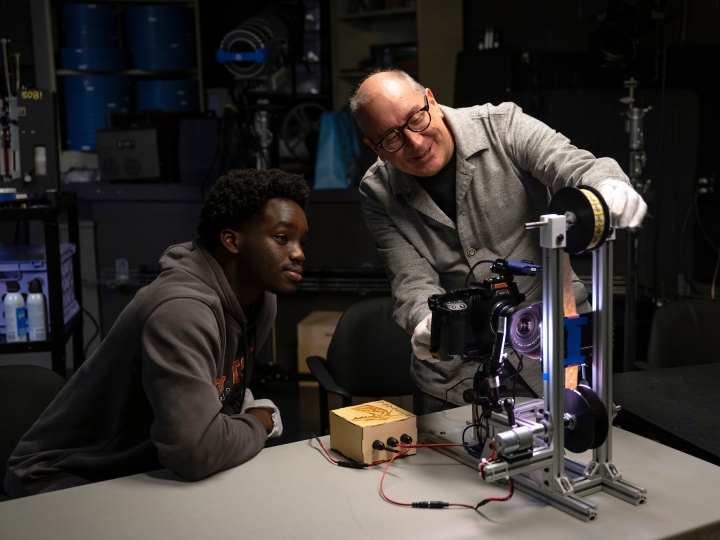Bucknell Answers: Opera and Emotion
July 20, 2015
Professor Emily Martin, formerly a professional soprano, knows how to convey a range of feelings through performance. Who is the current audience for opera performances, and how can this challenging art form thrive? Martin explains opera's enduring appeal and how the Bucknell Opera Company helps make it accessible.
Q: What makes opera relevant today?
A: Opera takes us out of our comfort zone and allows us to feel super-deep emotions that we probably are not experiencing in our everyday life. The biggest challenges facing opera are economic challenges, which are related to bringing in a new audience. There's a reason we do live opera — because things happen on stage, that's an excitement you can't replicate. That's why it's exciting, and that's why people want to go see it. It's not just a tired old story happening over and over again.
Q: How are you reaching new audiences?
A: The Bucknell Opera Company is trying to take steps in the community and in the university setting to introduce opera to the community in a different way than has been done in the past. In spring 2015, we brought composer Garrett Fisher in for a residency to produce and perform his opera The Ghosts of Monticello, which was based on the lives of Sally Hemings and Thomas Jefferson. Carmen Gillespie, professor of English, wrote the libretto and worked closely with Garrett and myself to mold and shape the opera for the opera company and the ability of the singers. We also presented a preview at the bookstore before the film version of The Tales of Hoffman at the Campus Theatre. As the singers sang in the bookstore, community members walked by and looked in the window, and eventually came inside.
Q: Why is opera so important to learn, teach and share?
A: It brings very close to home as an audience member these super-emotional feelings of love and death and things in our society that most of the time we can't feel. And if people can get past the ridiculous storylines and can get past their preconception of what opera really is, they'll find that those emotions they experience in the opera house can be so enthralling and moving that it doesn't really matter if it's opera or theatre or anything else. I believe opera and the emotions of opera are so visceral, and truly we want to experience those emotions — we just sometimes have a hard time getting to that place.

